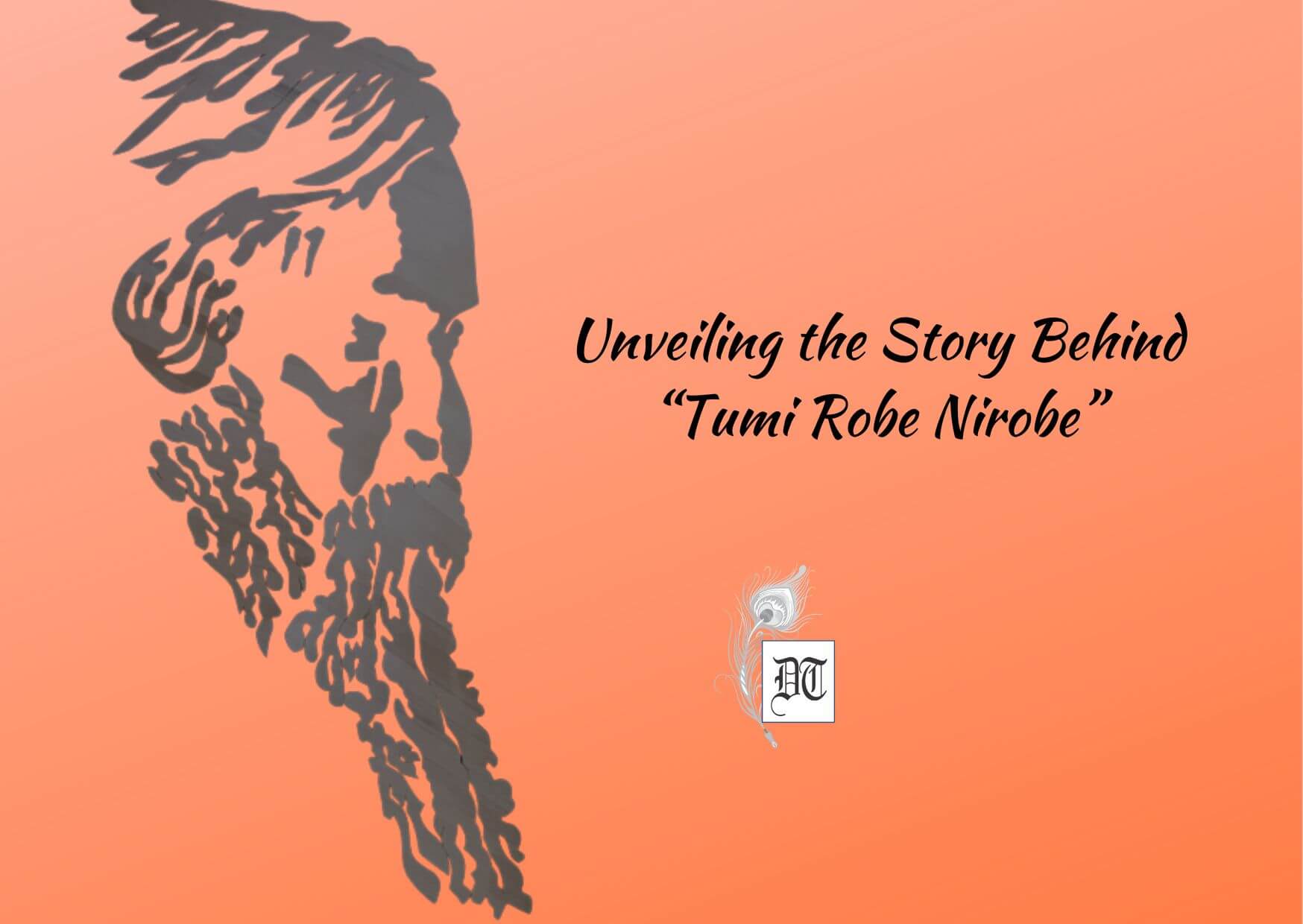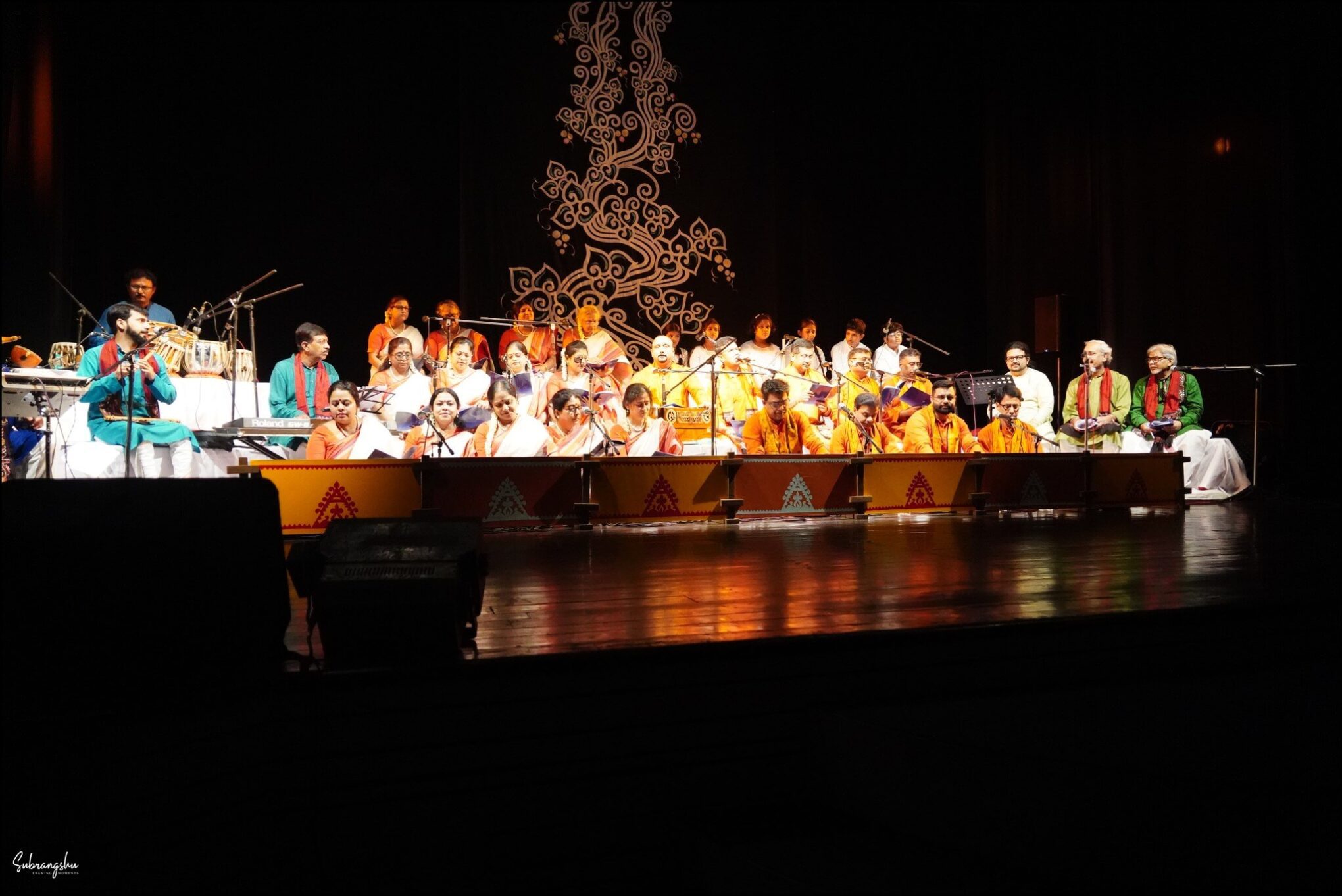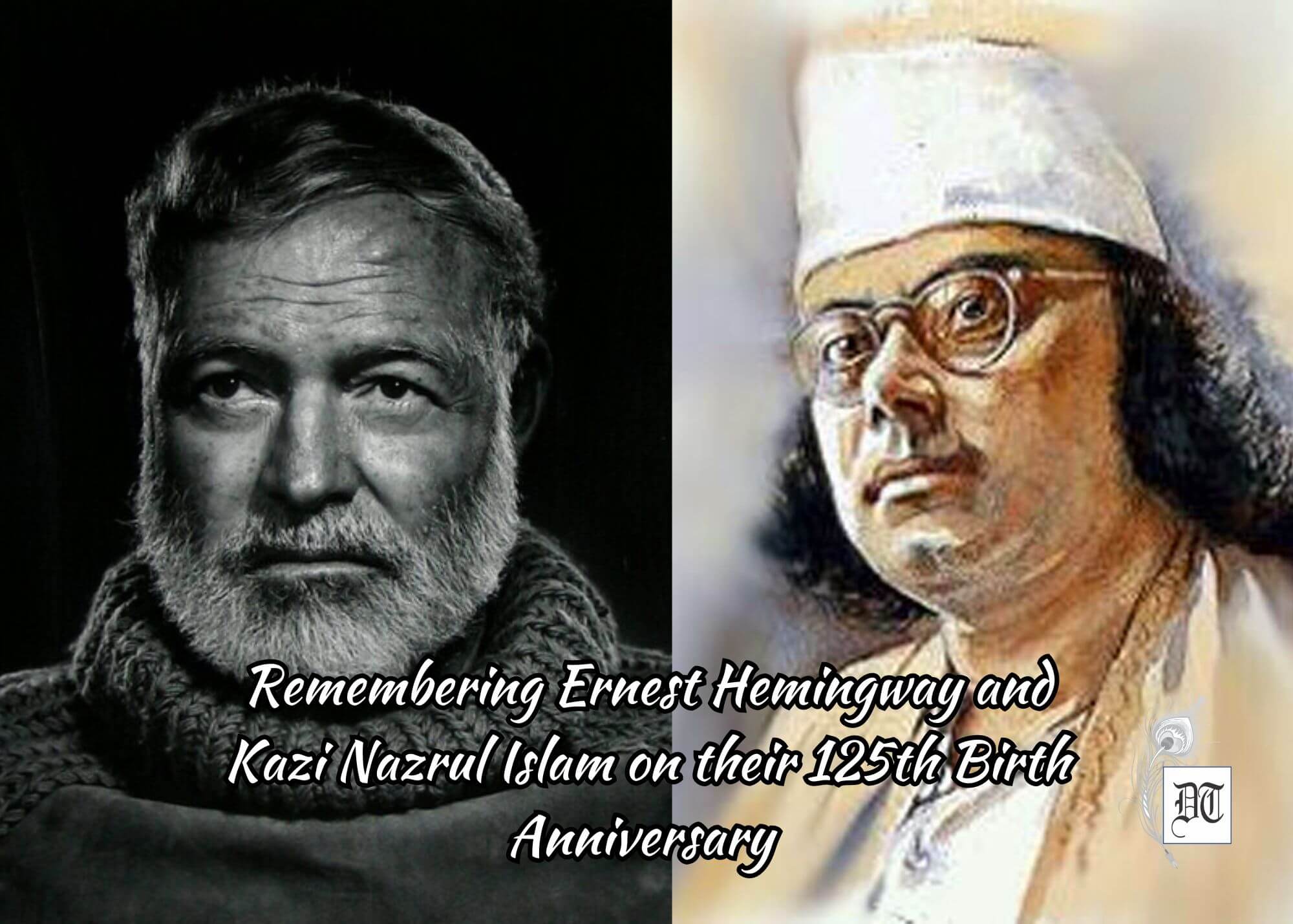Madhuri discusses the 120-year anniversary of Rabindranath Tagore’s “Tumi Robe Nirobe” in Bengali Pochise Baisakh, highlighting its timeless romanticism, marital bliss, exclusively for Different Truths.
This Pochise (25) Baisakh, is a small tribute to our bard, who has left an outstanding legacy for us—Rabindra Sangeet that tugs at our hearts in so many ways. This exquisite composition, “Tumi Robe Nirobe” (Silently shall thou dwell), is suffused with tender romanticism in both lyrics and melody. There is rare sensitivity and understated passion in its lyrics, as Tagore is shining through everything else, reigning supreme. It is amazing that a song written 120 years ago (1895, to be precise) still retains its romantic charm and appeal—both lyrically and musically. Even to this date, this song, like many other Tagore compositions, remains surprisingly universal, modern, contemporary, and fresh, if not eternal.
This is one of the few songs we know of that Tagore wrote, addressing his wife, Mrinalini Devi. The poet was in full bloom of youth then and had his fourth child, Mira, a year earlier. He was experiencing marital bliss and contentment—a source of fulfillment in family life, he had not felt earlier. And his feelings poured out in this unusually beautiful, haunting song. It was truly an ode to Mrinalini Devi, his wife
Those of us who are serious Tagore students can’t help but lament the poet’s inability to ever experience such tender bliss again. In the long productive and increasingly lonely and sad life that followed—a life that was troubled with inner greatness and grandeur, and stupendous and sustained achievements in multiple spheres as well as profound grief, sorrow, setbacks, and loneliness.
This makes the song so special for me. I had not found a satisfactory English translation of this song, not even by Tagore himself.
Tumi rabe nirabe hridoye mamo
Nibiro nibhrito purnimanishithini-samo.
Mamo jibano joubano mamo akhilo bhubano
Tumi bhoribe gourabe nishithisini-samo.
Jaagibe Ekaaki tabo karuno aankhi,
Tabo anchalochhaaya more rohibe dhaaki.
Mamo dukhobedono mamo saphalo swapano
Tumi bhoribe sourabhe nishithini-samo.
I am sharing a translation of this song:
Silently shall thou dwell
In the deepest recess of my heart
Like the radiance of the solitary moon
Spread across the night sky
The springtime of my life, my entire universe
Thou shall lend glory to,
Like the radiance of the solitary full moon
Spread across the night sky.
In thy solitary, pensive gaze
Shall thou watch over me,
The shelter of thy drape
Shall be my secluded refuge.
My sorrow, my pain, my dreams that come true
Thou shall render sweet with thy fragrance,
Like the radiance of the solitary full moon
Spread across the night.
Tagore had said that, from his vast corpus of literary and artistic works, if anything were to pass the test of time and survive, it would be his songs. And there couldn’t have been a better testimony to that. Today, more than 75 years after Tagore passed away, the little that is true, the little that is good, the little that is beautiful about us Bengalis, we owe it largely to him.
Picture design by Anumita Roy





 By
By
 By
By
 By
By
 By
By